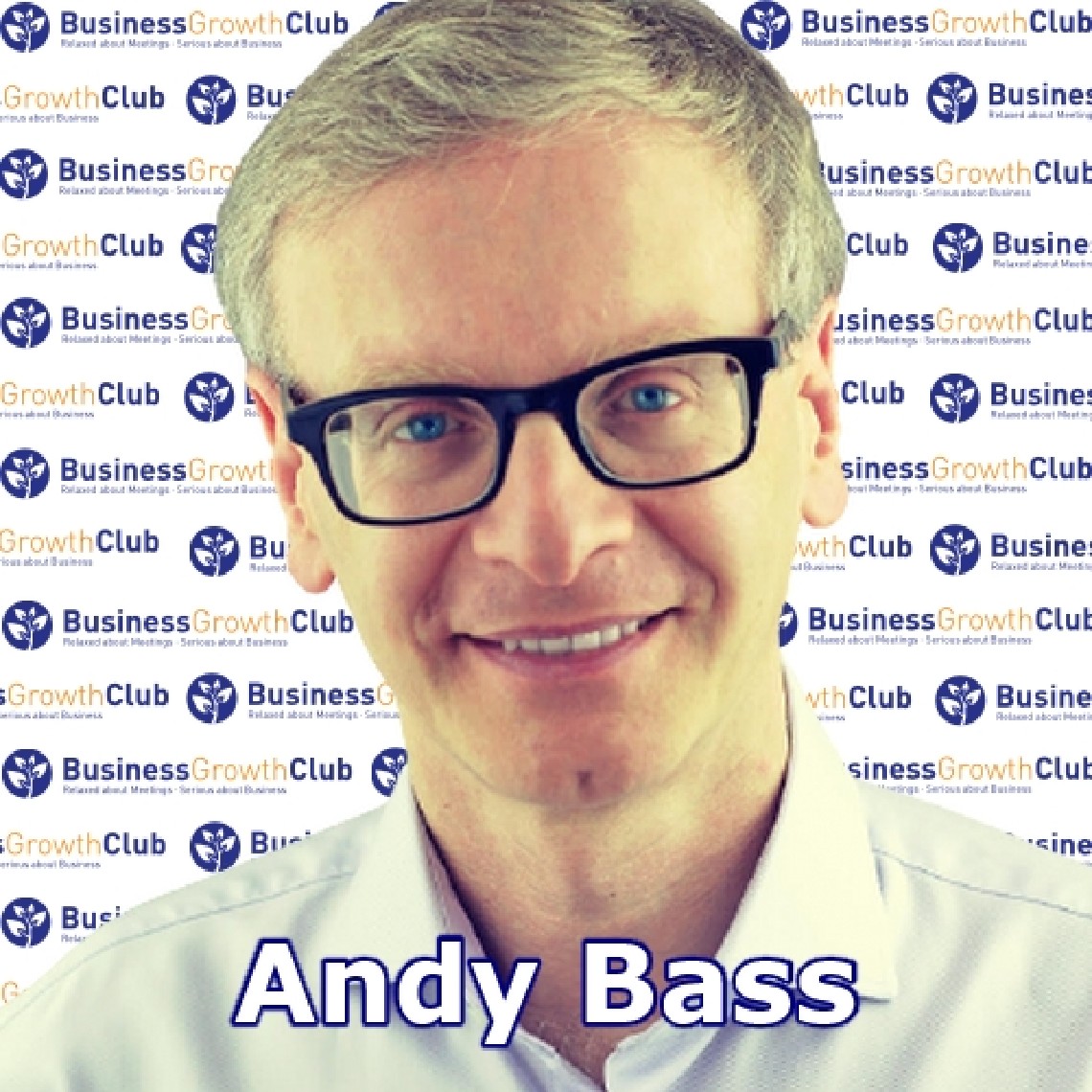'10 Minute Tip' by Andy Bass - Faster Business Growth Specialist - 7:30am to 9:30am
Andy Bass from Bass Clusker Consulting helps leaders like you to grow your business by doing more with resources that you have already.
Andy has worked with companies large and small across a wide range of industries and sectors including professional and financial services, packaging, technology, creative, health and education, in the UK, US, Scandinavia, Mexico, Russia, India and China.
Andy has taught at Warwick, Aston and Strathclyde Business Schools, and for the Aston Centre for Executive Development. He also presents on the Be The Business/Performance Through People programme which aims to facilitate the growth of UK SMEs. An active member of the Birmingham (UK) business community, Andy is a former member of the West Midlands Regional Advisory Board of Common Purpose and a former board director of Birmingham Forward (now BPS Birmingham).
Andy is of course the author of ‘Start With What Works: a faster way to grow your business’ recently published by Pearson Business, as well as ‘The Performance Papers: Incisive Briefings for Busy Leaders’, and is co-author of ‘Networkability: building your business one relationship at a time.’
Read about Andy’s new book and download a sample chapter and free resources at www.StartWithWhatWorks.com.
Andy Bass works really well with people responsible for running and growing a P&L. So they’ll have title like MD, CEO, Owner, Director, Managing Partner, Lead Partner (of a professional group within a firm).You can contact Andy as follows
By email: andrew@bassclusker.com
By phone: +44 (0) 7754 232 888
About the conversation:
Start With What Works: a Faster Way to Grow Your Business
The dangerous seduction of the exotic. New ideas just seems more valuable, whether or not they actually are. The word ‘exotic’ literally means ‘from the outside’.
The seduction of the exotic can cause businesses to overlook hidden potential. They think the answers to their growth challenges must rely on bringing in new resources from outside: perhaps a Rockstar hire, a new computer system, so called ‘best practices’, or even an acquisition. And while those things can of course be important, they are also risky and expensive.Do More With What You Have Already
As an alternative, some businesses have done extremely well by starting somewhere else: recognising and capitalising on the value of resources they had already.
One way to find these hidden resources is to identify areas that are working well in your business and ask: “What resources must be there in order for this to work, and what else can we do with them?”
This thinking is applicable whatever the size of your business:
Large company. Amazon Web Services was launched when Amazon realised the internal capabilities that they had developed to run their main e-commerce website could be sold as a service to paying customers. As of 2020, AWS has grown to offer more than 200 services and controls more than a third of the cloud computing market, twice as much as its closest competitor. It has consistently been the most profitable division of Amazon.
Mid-sized company. Lotus Cars has developed notable expertise in vehicle dynamics through its long involvement in motorsport and high performance car manufacture. It capitalises on that know-how through its consulting arm Lotus Engineering which consults on vehicle dynamics, suspension design and advanced propulsion systems for clients such as Tesla and Formula 1 competitors.
Smaller company. Specialist software house IO Studios wanted an easy way to track its sales pipeline. The company was signed up to a well-known customer relationship management (CRM) system. The problem was that nobody liked using it, so they didn't.
The company decided to use their coding skills to develop a CRM for themselves – one that they would actually like using. One day a client saw it and was impressed, so asked if they could adopt it too. After other clients showed an interest, IO Studios built and launched a commercial version called Salesradar with customers ranging from freelancers to giants like Costco.
IO Studios, a regional SME, used the same strategy as Amazon and Lotus. When they noticed that others shared a problem they had solved for themselves, they acted entrepreneurially, packaging up their solution into an attractive commercial version to seize the opportunity. This is just one of the strategies Andy Bass talks about in his new book, Start Wirth What Works
Questions to think about
Could you do the same as these companies? Here are some questions for you to ask your self and your team:
• Where have you developed solutions for your own problems that you could package and sell to others facing similar challenges?
• What internal processes are you so good at that you could offer as a service or product to others too?
• What have you learned in the course of business, that like Lotus Cars, you could advise on or even teach others?
• A particular favourite of Andy’s “Why you aren’t worse?” Most people ask “why aren’t we better” and when you do you’ll only hear about problems. But when you ask why you aren’t worse, you’ll hear about your resources, probably ones you are overlooking.
It’s human nature to take the familiar for granted. This tendency makes it easy for you to overlook potential both to improve your operations and to provide new value in a way that is often quicker, with less cost and lower risk.
Listening to Andy’s tip will
Increase your awareness of and confidence in additional value that you have to offer. This can support both finding new customers and bolstering your prices.
It will also give you ideas of how you can be flexible in these fast-changing times. If you really get the idea you’ll be more ambitious in your growth plans.




